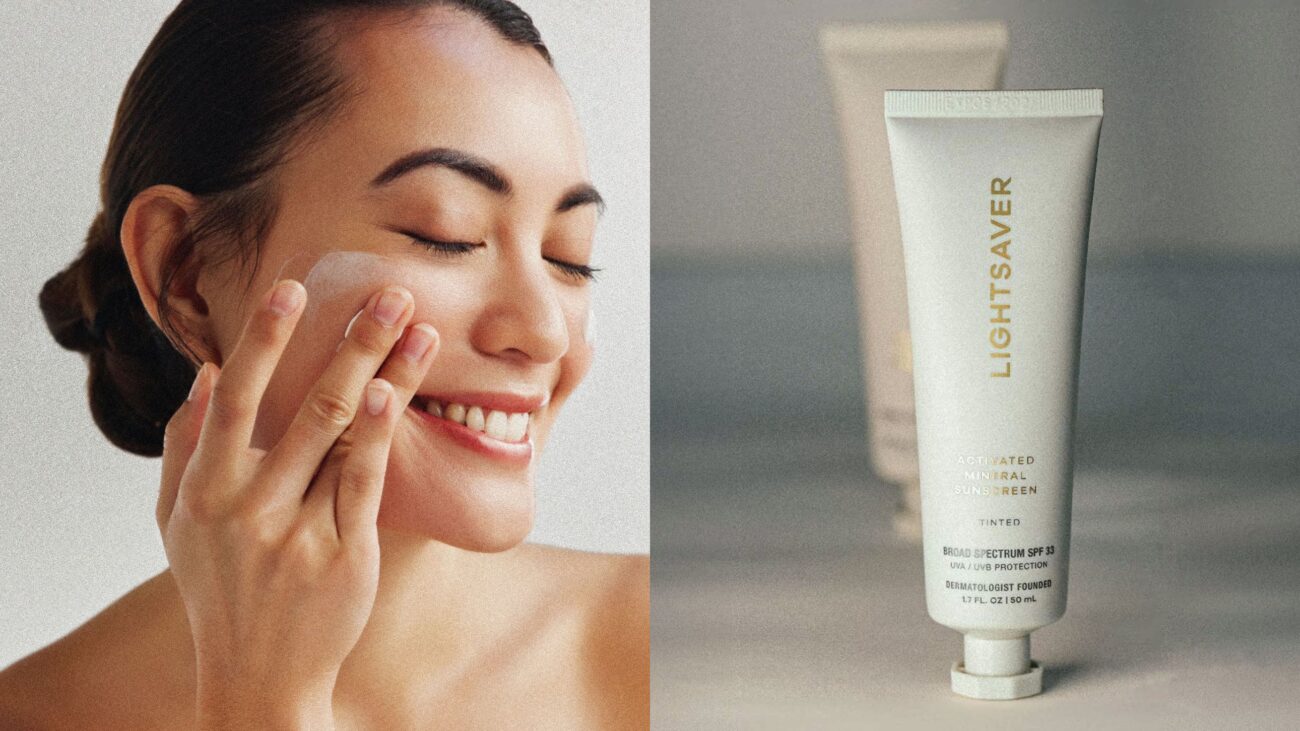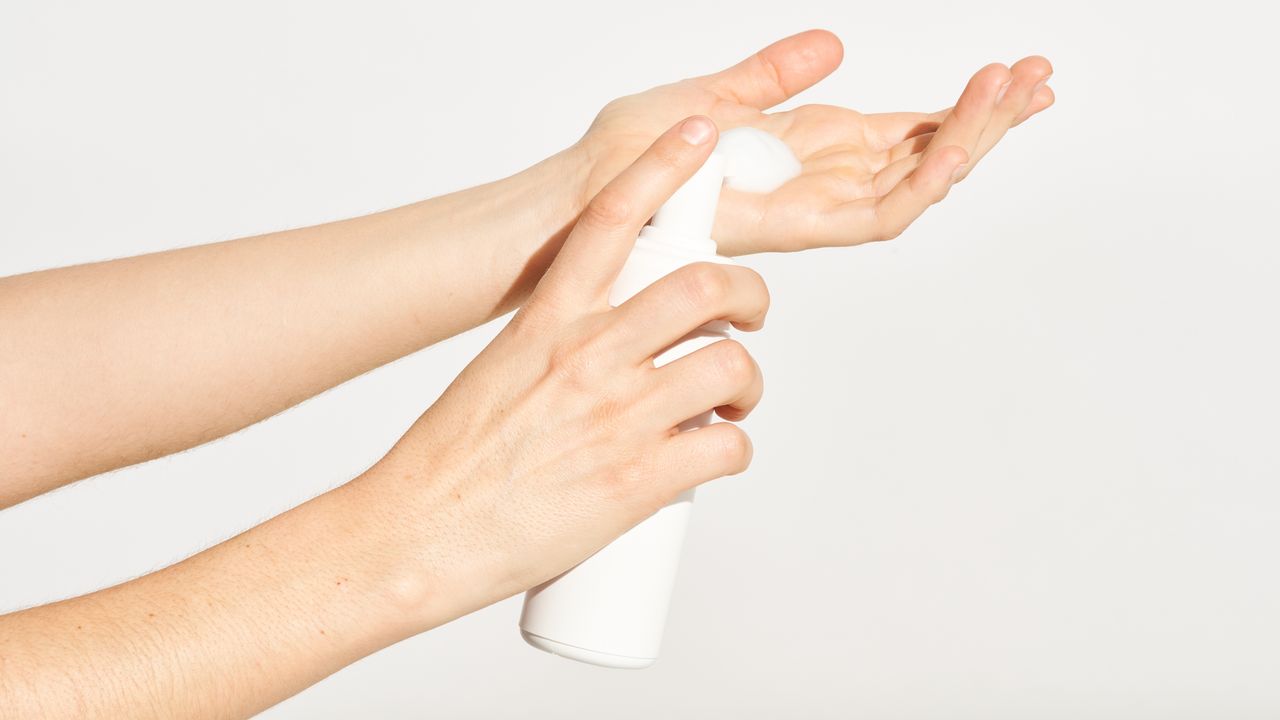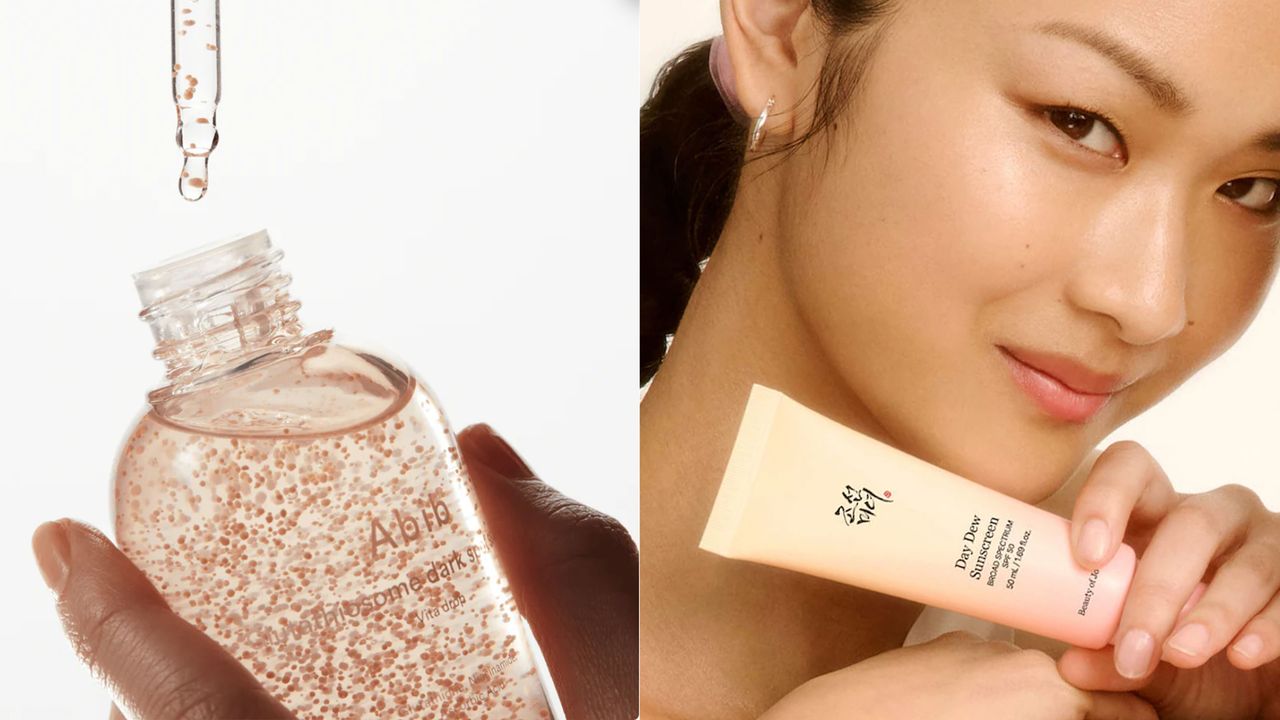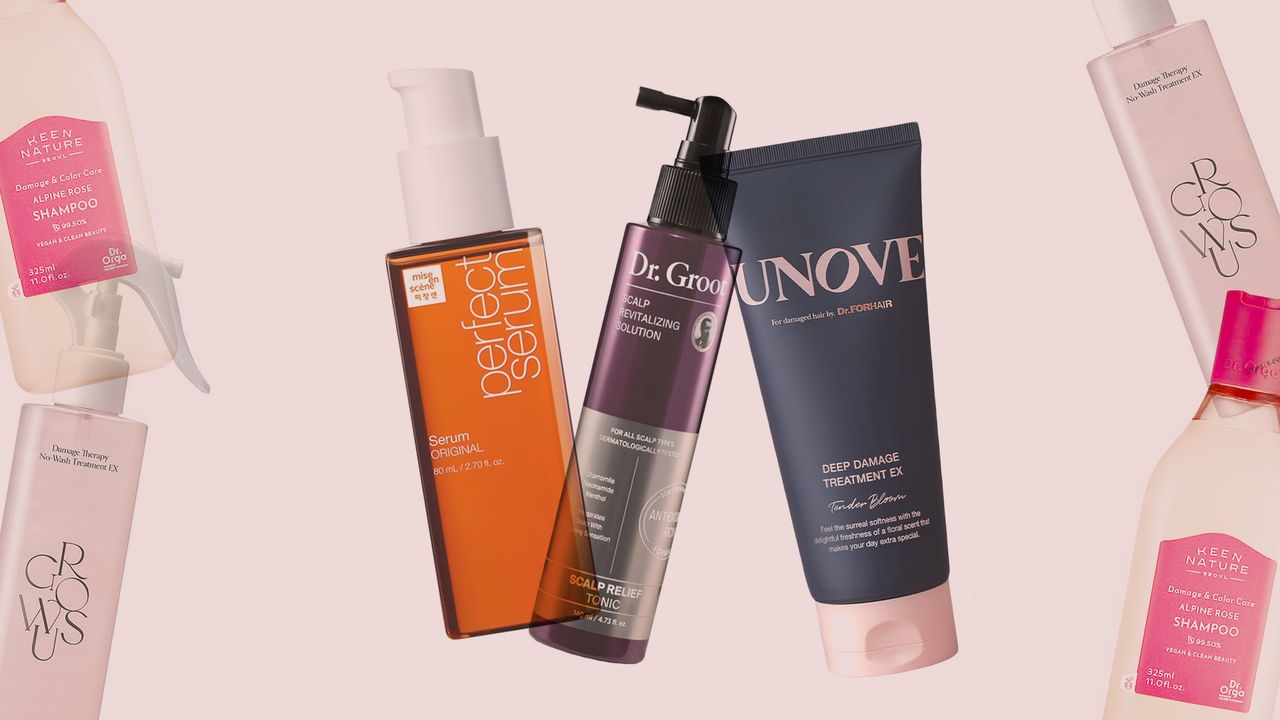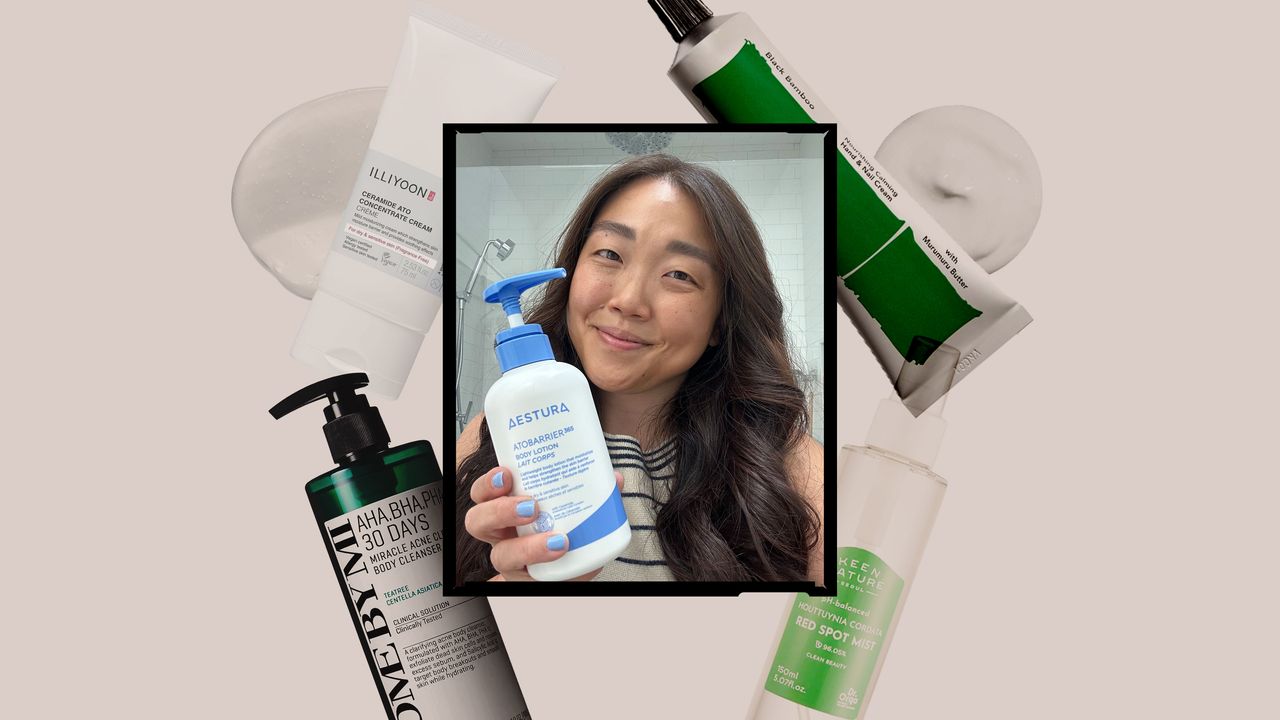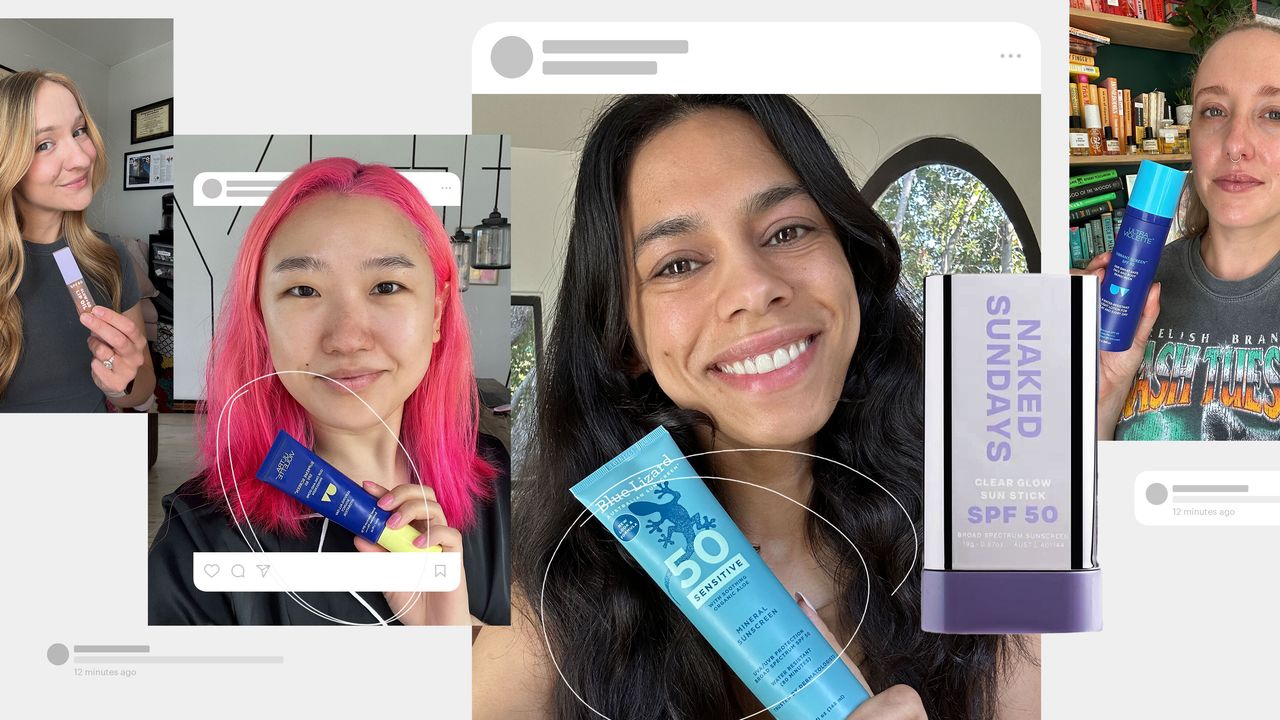Blog
Are Korean Sunscreens Really That Much Better?
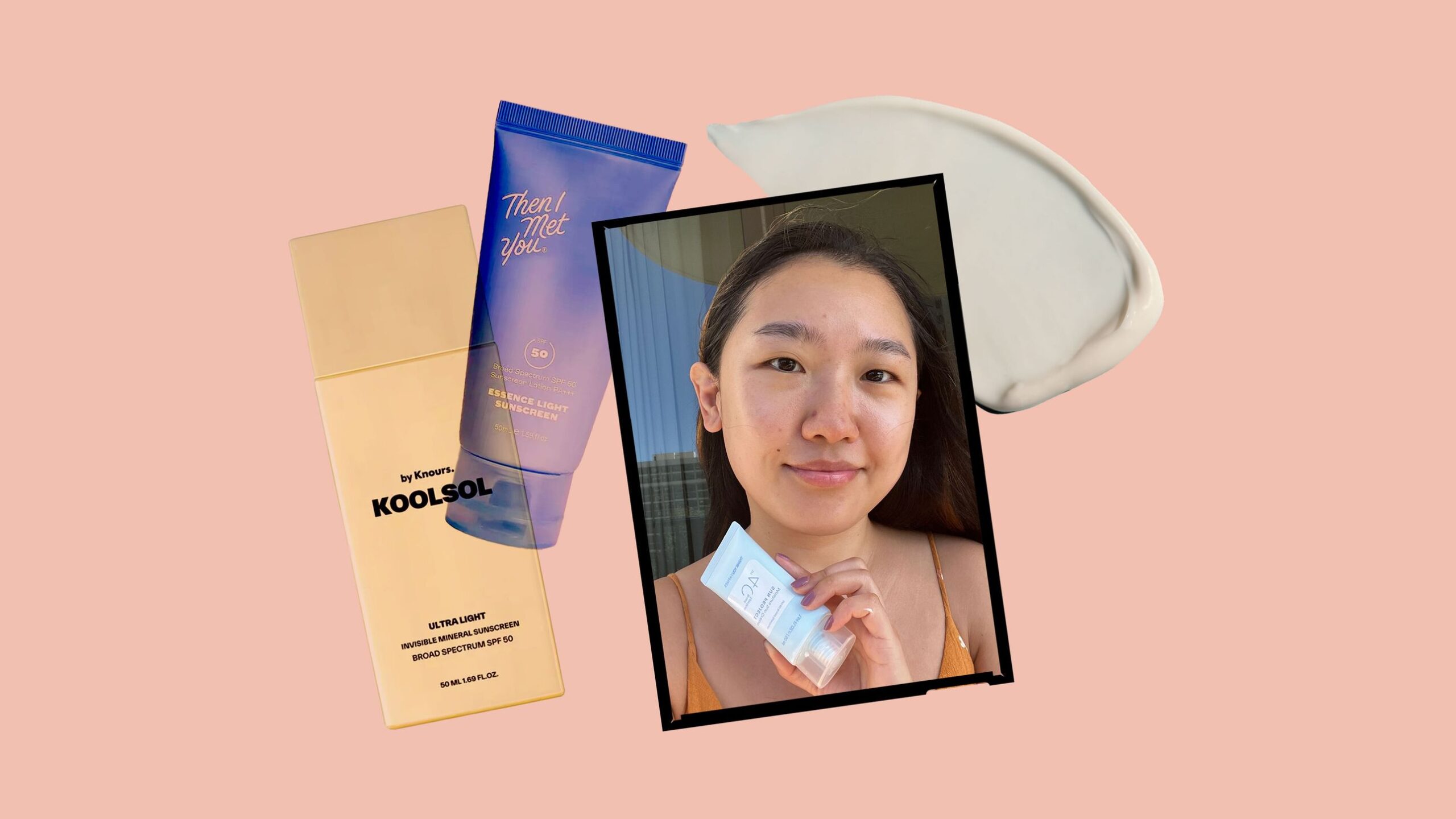
P.S. For those who can’t quit “true” Korean formulations (with those innovative UV filters, who can blame you?), there are Asia-based retailers such as Olive Young (the Sephora of Korea, essentially), Stylevana, and Yesstyle that you can buy from with confidence.
Frequently Asked Questions
Best Chemical Sunscreen Overall: Round Lab Birch Moisturizing Sunscreen UVLock SPF 45+
Why we love it: Round Lab made one giant splash with its Birch Moisturizing Sunscreen, so it’s no surprise the brand quickly followed up with an FDA-approved formula—and we’re happy to report the UVLock version is still one of the most elegant sunscreens we’ve slathered on. Derms agree, too. “It’s a moisturizing sunscreen that is formulated with hyaluronic acid, glycerin, and antioxidants to hydrate and soothe the skin,” says Claire Chang, MD, a board-certified dermatologist in New York City. “It blends in easily and layers beautifully with other skin-care products and makeup.” Not only is it hydrating, UVLock contains birch tree sap, panthenol, and purslane extract to calm the skin and curb inflammation. It’s the whole package, mark my word.
Tester feedback from contributing commerce writer Christa Joanna Lee
“I can’t believe it took me this long to try the Round Lab Birch Moisturizing Sunscreen. Now I fully get the hype. It disappears instantly, makes my skin feel hydrated thanks to the birch sap, and honestly, my only complaint is that it doesn’t come in a jumbo bottle so I can slather it everywhere.” —Christa Joanna Lee, contributing commerce writer
- Sunscreen type: chemical
- Key ingredients: avobenzone, homosalate, octisalate, birch tree sap, niacinamide, glycerin (no percentages of UV filters listed)
- Fragrance-free: yes
- Who it’s for: all skin types
Best Mineral Sunscreen Overall: Knours by Koolsol Ultra Light Invisible Mineral Sunscreen SPF 50
Why we love it: Mineral sunscreen gets a bad rap, but for valid reasons. Zinc oxide is literally a white powder, so it’s impossible to formulate a sunscreen that provides zero cast on all skin tones. Your best bet is using a tinted mineral sunscreen
Tester feedback from commerce editor Sarah Han
“I have never met a Korean mineral sunscreen—or any mineral sunscreen, especially untinted—that has this close to the feel of a chemical sunscreen. As you probably know, no mineral sunscreen can be 100% cast-free (zinc oxide starts as a white powder, after all!), but Koolsol Ultra Light Invisible Mineral Sunscreen SPF 50 leaves my complexion looking almost indiscernibly the same. I only notice the teeniest tinge of cast in real life but I don’t think an observer would. (At least my boyfriend, who stares at my face quite a lot, couldn’t tell!) It applies so elegantly, like a lightweight moisturizer, and leaves my skin looking dewy, but not overly so. I’d never thought I’d say such a thing, but I think I even prefer this mineral option over Knours’ chemical SPF (which is also nice, to be fair)!” —Sarah Han, commerce editor
- Sunscreen type: mineral
- Key ingredients: zinc oxide (10%), niacinamide, snow mushroom, aloe, cica
- Fragrance-free: yes
- Who it’s for: all skin types
Best for Dehydrated Skin: Then I You Essence Light Sunscreen SPF 50 PA+++
Why it’s worth it: Then I Met You’s Essence Light Sunscreen SPF 50 PA+++ is a dream for skin that’s lacking in hydration and/or looking dull, thanks to ingredients such as ceramides, hyaluronic acid, and provitamin B5. Ceramides, in particular, “help the skin retain moisture and allow [for] proper function,” New York City-based dermatologist Sejal Shah, MD, previously told Allure. Translation: This airy lotion will draw moisture in, relieve any tightness in the skin, and leave you looking oh so glowy. Even if you don’t have dry or dehydrated skin, it’s worth a try, as our editors attest.
“Technically, I have combination skin, but catch me mid-day and you’ll see me shine from across the room. While the Then I Met You Essence Light Sunscreen SPF 50 PA+++ doesn’t sop up oil or even prevent it, it does play into my daily gleam in the best, most helpful way by giving my dehydrated skin much-needed moisture (in the form of ceramides, hyaluronic acid, and panthenol) as it protects it. I’ve gone through two, maybe three of these tubes already—it’s the best!” —Sarah Kinonen, associate beauty director
- Sunscreen type: chemical
- Key ingredients: avobenzone (3%), homosalate (9%), octisalate (4.5%), octocrylene (5%), ceramides, fermented sake, hyaluronic acid, provitamin B5
- Fragrance-free: yes
- Who it’s for: people with dry, dehydrated, or dull skin
Best for Dry Skin: Laneige Hydro UV Defense EX Sunscreen SPF 50+
Why we love it: Laneige has won over our hearts with its skin-care products—hello, Lip Sleeping Mask and Cream Toner Mist—so it was only a matter of time before its sunscreens would do the same. Hydro UV Defense Sunscreen has that coveted silky feel and finish that toes the delicate line between hydrating and greasy. Glycerin and hydro-ionized mineral drive just the right amount of moisture into your skin for a healthy glow, and it doesn’t pill throughout the day as you reapply, a.k.a. a recipe for sun-protection success.
“The Laneige Hydro UV Defense Sunscreen has that perfect in-between texture—not so watery that it slips through your fingers, but not thick or greasy either. It feels amazing on bare skin, and surprisingly, it layers really well over makeup when I reapply throughout the day—just a little bit of glow that shows off healthy skin.” —Lee, contributing commerce writer
- Sunscreen type: chemical
- Key ingredients: avobenzone (2.5%), homosalate (7%), octisalate (4.5%), cctocrylene (9%), cica, glycerin, hydro-ionized mineral water
- Fragrance-free: no
- Who it’s for: people with normal to dry skin
Best for Acne-Prone Skin: Haruharu Wonder Black Rice Moisture Airyfit Daily Sunscreen SPF 50 PA++++
Why we love it: If you prefer a satin/velvety finish, we’ve found the SPF for you. Compared to other Korean sunscreens that really dial up the glow factor, Haruharu Wonder’s Black Rice Moisture Airyfit Daily Sunscreen SPF 50 PA++++ has a more natural finish that draws less attention to any shine, so it vibes well with oily and acne-prone skin. Testers also say it wears wonderfully underneath makeup, so it’s pretty much the ideal everyday sunscreen.
Tester feedback from contributing commerce editor Deanna Pai
“I didn’t even know I needed a sunscreen like this until I tried it. It just…disappears into my oily skin. It doesn’t leave it dewy, but also not particularly matte. The velvety texture just sinks in and becomes undetectable—which is pretty much all I want from my sunscreen.” —Deanna Pai, contributing commerce editor
- Sunscreen type: chemical
- Key ingredients: rice bran oil/extract, glycerin, niacinamide, ceramide NP, heartleaf
- Fragrance-free: yes
- Who it’s for: people with acne-prone or oily skin
Best for Normal Skin: Thank You Farmer Sun Project Moisture Sun Cream SPF 40
Why it’s worth it: You’ll see a handful of familiar, editor-beloved ingredients in Thank You Farmer’s Sun Project Water Sun Cream, such as panthenol, niacinamide, vitamin E, and glycerin. This superbly hydrating formula applies like a dream, absorbs in seconds, and doesn’t leave a white cast, ever. While it seems best suited for normal or dry skin, everyone can benefit from this nourishing formula. Panthenol, niacinamide, vitamin E, and glycerin boost plumpness, radiance, and barrier function, all while protecting your skin with SPF 40. In other words, this chemical sunscreen checks all of our boxes. Wait, and it’s under $25? Dreams do come true.
P.S. If you have sensitive skin and don’t mind a tinted sunscreen, check out Thank You Farmer’s Sun Project Rice Tinted Mineral Sunscreen SPF 40, which packs ample hydration and UV defense powered by 100% zinc oxide.
“Thank You Farmer’s Sun Project Moisture Sun Cream SPF 40 encapsulates everything I love about Korean sunscreens, which are 100% more elite than US sunscreens (I said what I said.) It’s supremely hydrating—so much so that I actually skip my daytime moisturizer—without feeling heavy or greasy, and gives my skin a delightful but not over-the-top glow. This lightweight cream melts right in without the slightest bit of cast.” —Sarah Han, commerce editor
- Sunscreen type: chemical
- Key ingredients: homosalate (9%), octinoxate (6.8%), octisalate (4.5%), octocrylene (4%), and vitamins B5, B3, E, and K (panthenol, niacinamide, tocopherol, and menadione)
- Fragrance-free: yes
- Who it’s for: all skin types (unless you don’t like a slightly dewy finish)
Best for Combination Skin: Anua Zero-Cast Moisturizing Finish Sunscreen SPF 50
Why we love it: Are you unsure if you’re applying enough sunscreen? We’ve been there. Anua’s Zero-Cast Moisturizing Finish Sunscreen SPF 50’s sunny cap doubles as a measuring cup, which we’ll venture to guess holds around a half teaspoon—the appropriate amount for your face and neck. This silky cream stars niacinamide to help curb serum, so your T-zone isn’t gleaming by midday, and is water-resistant for up to 80 minutes, making it a beach-bag essential.
“Anua’s Zero-Cast Moisturizing Finish Sunscreen SPF 50 is a newer addition to the routine but it made a great first (and second, and third, and so on…) impression. This is a true cream so it takes me a good 20 seconds to blend in fully (I do go heavy on the dosage though, to be fair), but once it does, I’m left with a dewy but not greasy-looking finish. My makeup glides on after the fact but, on days I don’t wear any, my skin just looks more alive and refreshed.” —Sarah Han, commerce editor
- Sunscreen type: chemical
- Key ingredients: avobenzone, homosalate, octisalate, octocrylene, glycerin, niacinamide, panthenol
- Fragrance-free: yes
- Who it’s for: people with oily, combination, or normal skin
Other great Korean sunscreens
- Calling all those who are aging gracefully: James Y. Wang, MD, a board-certified dermatologist based in LA, gave Cosrx’s Vitamin E Vitalizing Sunscreen SPF 50+ a stamp of approval in our roundup of the best sunscreens for mature skin. “Free radicals can contribute to premature aging, so the presence of vitamin E may help maintain the health and vitality of maturing skin,” he explained. Silica and cotton extract help curb excess sebum, so it’s an excellent choice for oily skin as well.
- Want a straight-up-clear chemical sunscreen à la Supergoop Unseen? Sungboon Editor’s Daily Invisible Blurring Sunscreen comes out as a transparent gel that helps blur the look of pores, while niacinamide and glutathione help even out your skin tone.
- Looking for a sunscreen that’s hydrating and doesn’t pill under makeup? Jenny Liu, MD, a board-certified dermatologist based in the Twin Cities, recommends Isntree Hyaluronic Acid Daily Sun Gel SPF 30 PA+++, which she says is “super lightweight, elegant, and great under makeup.” Within the formula lie 10 (!) types of hyaluronic acid, niacinamide, cica, heartleaf, and adenosine, which can help relax the appearance of wrinkles over time.
- Need something convenient for on-the-go reapplication, or have squirmy kids? Pick up the Dearcloud Sunny Defense Sunscreen Stick SPF 50+ PA++++, a chemical sunscreen stick packed with a hydrating and soothing blend of hyaluronic acid, cica, and allantoin.
Frequently Asked Questions
How are Korean sunscreens different from Western sunscreens?
One of the key differences between Western sunscreens and Korean sunscreens is their role in our perception of skin care, as Zion Ko Lamm, MD, a board-certified internal medicine doctor based in Charlotte, North Carolina, points out. Korean sunscreens are part of a skin-care lifestyle, defending against a broader range of long-term effects of the sun and promoting general skin health. On the other hand, Western sunscreens are formulated with necessity in mind, beginning and ending with sun protection.
Another difference is that no matter how much zinc oxide they contain, Korean mineral sunscreens are transparent on all skin tones, free of the telltale white cast that we often experience with non-Korean sunscreens. Plus, both chemical and mineral Korean sunscreens feature ingredients found in your favorite serums and moisturizers, like Centella asiatica (known as cica for short), allantoin, ceramides, hyaluronic acid, and niacinamide. So when you apply Korean sunscreen to your face, you protect your skin from UVA and UVB rays and work in a layer of hydrating, brightening, and smoothing benefits.
Are Korean sunscreens better than Western sunscreens?
Depends on who you ask, but many would say yes. Why? “It’s not that South Korea has something specifically unique that allows them to create better sunscreens,” Toronto-based cosmetic chemist Stephen Ko previously told Allure. “They just have access to more sunscreen ingredients to work with.”
Because the U.S. Food and Drug Administration (FDA) classifies sunscreen as a drug, its chemicals and components must undergo lengthy, formal drug approval processes, which results in limitations to the ingredients in Western formulas. In fact, “there hasn’t been a new [chemical or mineral] approved for use in sunscreens in the U.S. since 1999,” says Ko. This also allows Korean brands to incorporate SPF and skin care innovations into their formulas more swiftly, allowing for more state-of-the-art, sophisticated formulations (active ingredients include Tinosorb S, Uvinul A Plus, and Uvinul T 150).
In short, the U.S. is “terribly behind the rest of the world in approving sunscreens that are superior to those we have,” Vivian Bucay, MD, a board-certified dermatologist based in San Antonio, Texas, previously told Allure. Even Congresswoman Alexandra Ocasio-Cortez agrees. If you’re passionate about sunscreens like we are, she encourages people to contact their congressperson (especially if they sit on the Energy and Commerce Committee) and call upon them to “break through some of the regulatory barriers at the FDA” and “fund public research so that we can all enjoy the filters that develop out of the scientific process.”
How should I choose a Korean sunscreen?
A lot of this depends on your personal preferences, just like any sunscreen produced in the US, Europe, Asia, etc. But if you look at Korean sunscreen packaging, you’ll notice “PA” next to the SPF grades. While SPF measures the degree of UVB light protection, PA (Protection Grade of UVA) is all about UVA light and your protection from developing pigmentation, says Dr. Ko Lamm. She equates PA+++ to SPF 30 and recommends seeking out sunscreens with a minimum of each. “PA is based on the PPD test or the persistent pigmentation darkening test. It measures the multiple increases of UVA a person can theoretically be exposed to without tanning or darkening of the skin,” Dr. Ko Lamm adds. “The PA system ranges from PA+ to PA++++; the maximum rating means it has a PPD value of 16.” This means that while wearing PA++++ sunscreen, your skin can withstand 16 times more UVA radiation than it would without the sunscreen. So, until you exceed that hypothetical 16x UVA level, you won’t start to tan or burn.
Meet the experts
- Claire Chang, MD, a board-certified dermatologist in New York City
- James Y. Wang, MD, a board-certified dermatologist based in LA
- Zion Ko Lamm, MD, a board-certified internal medicine doctor based in Charlotte, North Carolina
- Jenny Liu, MD, a board-certified dermatologist based in the Twin Cities
- Sejal Shah, MD, a board-certified dermatologist based in NYC
- Vivian Bucay, MD, a board-certified dermatologist based at the Bucay Center for Dermatology and Aesthetics in San Antonio, Texas
- Stephen Ko, a cosmetic chemist based in Toronto
How we test and review products
When Allure tests a product, our editors look at it from every angle in an effort to best serve you. We review ingredients, scrutinize brand claims, and, when necessary, examine peer-reviewed scientific and medical studies. In addition to testing each and every product that’s included in each and every review, we rely on experts who shape their fields, including dermatology, cosmetic chemistry, and medicine, to help us vet the ingredients and formulas.
For our list of the best Korean sunscreens, we considered each product’s performance across five primary categories: product ingredients, efficacy, product wear, and benefits. Every product was determined to have excelled in each category by our editorial team, which is composed of in-house writers and editors as well as contributors—along with special consideration from dermatologists. To learn more information on our reporting and testing processes, read our complete reviews process and methodology page.
Our staff and testers
A beauty product is a personal purchase. You might be searching for a face cream to address persistent dryness or a new nail product to add to your Sunday self-care routine; you may simply be browsing around for the latest launches to hit the hair market. No matter what you seek or your individual needs and concerns, Allure wants to ensure that you love anything we recommend in our stories. We believe that having a diverse team of writers and editors—in addition to the wide range of outside testers and industry experts we regularly call upon—is essential to reaching that goal.




